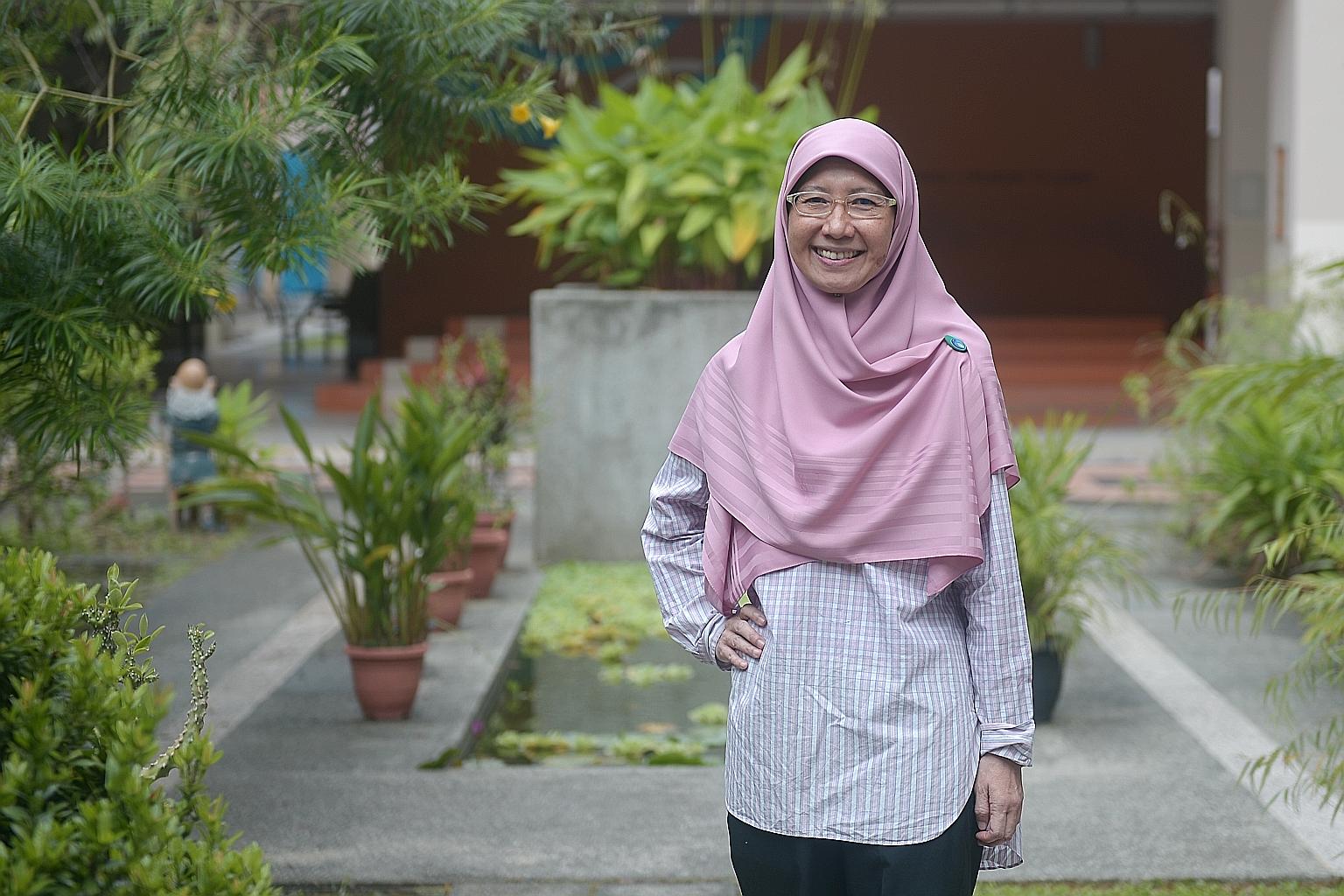She helps pupils with special needs cope in school
Sign up now: Get tips on how to help your child succeed

Madam Tutek, an allied educator for learning and behavioural support at Tampines Primary School, was a late bloomer and shows pupils how to overcome learning challenges.
ST PHOTO: MARCUS TAN
Follow topic:
Just as school starts to wind down in the last quarter, Madam Tutek Alauyah Amir's work picks up speed.
Her mind skips ahead to new pupils entering Tampines Primary School next year - specifically the ones with special needs like dyslexia, autism or attention deficit hyperactivity disorder - that she is gearing up to help.
For her dedication, the 56-year- old, an allied educator for learning and behavioural support at the school, won the Leading Foundation Teacher Award (LFTA) last year. The LFTA, started in 2014, specifically recognises early childhood and special needs education teachers who have made a difference to their pupils.
There are about 400 allied educators in primary and secondary schools here, since they were introduced to the system in 2005.
Calling herself a "late bloomer", Madam Tutek saw herself as an example to her pupils.
Sheepishly recalling how, as a student, she got into trouble by not doing the things that her teachers asked her to and for not paying attention in class, she realised only "late in life" that she had excess energy that could be put to good use in a positive way. "I was like them when I was a student. I had challenges learning, so I share with the pupils how I overcame them and try to inspire them. If I can do it, they can do it," she said.
In her six years as an allied educator at Tampines Primary, she said she noticed that most parents were very forthcoming, which made it easier for both parties to work together for the good of the child.
However, she noted an increase in the number of pupils starting school undiagnosed and put it down to parents who were either unaware that their children faced certain challenges in learning, or noticed them but hoped the child would grow out of the condition.
Madam Tutek starts work during the Primary 1 registration exercise in the second semester by noting parents who indicated on feedback forms that their children had special needs.
During the school orientation in November, she follows up with appointments to discuss details about the children - from their diagnoses and developmental milestones to their interests, strengths and challenges.
This allows her to develop aids to ease the children's first steps into primary school, such as notecards filled with visual aids of the various areas in the school and cues on the kind of behaviour appropriate in each area.
Putting in place a support system in school for a child with special needs was paramount, she said.
"It's going to be traumatic for the child, coming from a kindergarten classroom with maybe 10 to 15 peers to a very big school. Everything seems so big and unfamiliar, even the number of peers," she said.
To prepare her colleagues, she works closely with the pupils' form teachers, discussing the strategies to take, which are then "refined and tweaked as we go along".
In the second term, the teachers will appoint fellow classmates as buddies for the pupils.
Tampines Primary principal Veronica Tay said Madam Tutek is "creative and resourceful" and she "creates a supportive climate that inspires her colleagues to excel".
The result? Tampines Primary is a place where pupils with special needs are recognised, integrated and cared for.
Another of Madam Tutek's initiatives is a Literacy Specialisation Enrichment programme, which she designed and implemented.
The programme supports the school's Primary 1 pupils who are weak in reading and literacy skills, beyond those with special needs.
Modelling it on the Ministry of Education's School-Based Dyslexia Remediation programme, Madam Tutek prepares lesson packages and resources to teach these pupils phonics, word recognition and spelling, among other things.
She credits the supportive ecosystem of her school, including "awesome" colleagues and parents who buy into her ideas, for making it easy for her to bring her initiatives to life. She said: "I feel very blessed to be here, with great school leaders who are supportive of whatever you recommend - they allow exploration, learning and put support in place even though it may be new."
The LFTA is organised by the National Institute of Education, funded by the Leading Foundation, established by former head of civil service Lim Siong Guan, and administered by the Community Foundation of Singapore.
This year's winners will be unveiled later this month.

